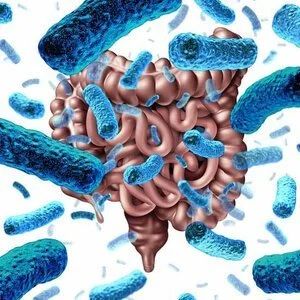Vitamin C And The Immune System
What is vitamin C good for?
Never has vitamin C been so popular since the emergence of the Corona Virus (COVID-19) over the last few months.
The general public is beginning to understand Vitamin C's immune-boosting properties, making this simple vitamin now hard to get hold of.
However, vitamin C’s strengths have been known for years.
In the 1700s, many sailors died of scurvy at sea, until 1747 when James Lind, a Scottish Physician found that the disease could be prevented and cured. He essentially conducted a clinical trial, feeding sailors citrus fruits packed with Vitamin C.
While most people think of citrus fruits when they think of Vitamin C, they forget all the other sources that might have an even higher amount of Vitamin C.
These other sources include:
Green leafy vegetables like Kale and spinach, cruciferous vegetables like broccoli and Brussel sprouts, herbs like thyme, sweet peppers, papayas, kiwis and much more.
So how does vitamin C boost the immune system?
The details are complex, but in essence, it helps boost the cells that fight infection in the body called the white blood cells.
Vitamin C also acts like an antioxidant, thus in a way mopping up harmful compounds formed in the body.
It also helps repair collagen, a type of connective tissue in the body found in the gut and other organs in the body.
Last but not least, Vitamin C helps boost thyroid function, the master controller of our metabolism.
About a week ago Dr. Richard Cheng, an American Dr in China reported using high intravenous dose vitamin C for COVID-19 patients.
A similar regime is currently being used by some hospitals in New York, with some reports suggesting shorter intensive care unit (ICU) stay.
That said, this article is not about treating COVID-19 patients, but more about boosting your immune system to potentially prevent getting COVID-19 or any infections for that matter.
The immune system is a complex system with multiple facets.
This means a single vitamin is unlikely to work, but rather a combination of factors including healthy eating, exercise, good quality sleep and stress reduction.
There also seems to be a misconception that all vitamin C supplements are equal.
This couldn't be far from the truth, as the market is full of low -quality supplements.
Do not buy the cheapest supplement you see on Amazon-Always make sure you research the company thoroughly and even ask for a certificate of analysis if you are unsure.
Many cheap low-quality vitamin C supplements come out of China, so beware. This is not to condemn China which also produces very high-quality supplements and herbs grown in pristine well-controlled farms and mountains.
There are essentially six types of vitamin C on the market.
Natural Vitamin C
The first type is vitamin C derived from fruit.
This is a more natural form if you like.
Common fruits used are the amla fruit (Indian gooseberry, Amalaki), acerola berry, or less commonly the Kakadu plum (gubinge)
The Kakadu is reported to have the highest vitamin C content of any plant.
The vitamin C doses in such formulations tend to be lower than all the others.
Ascorbic Acid
Although used interchangeably, ascorbic acid is technically not exactly equivalent to vitamin C.
The process mostly involves using corn starch as a base out of which ascorbic acid is formed using various acids and solvents.
This raw form of vitamin can occasionally cause gastric irritation.
Ascorbic Acid with Added bioflavonoids
Bioflavonoids are beneficial plant compounds that act as antioxidants.
Vitamin C with added bioflavonoids is thus a helpful combination.
Buffered Vitamin C
Here Vitamin C is paired with a group of compounds called ascorbates.
These are gentle on the gastrointestinal tract.
Ester-C
This is a patented form of Vitamin C that uses a water-based extraction process, resulting in many naturally occurring vitamin C metabolites not otherwise formed using the traditional method.
Liposomal Vitamin C
Here, vitamin C is enclosed in double-walled fat-soluble structures called liposomes.
Our cell walls are made of fat, so the theory is a higher dose of vitamin C is transported into the cells using the liposomes as a vehicle.
So, there you go.
With regard to dosing, I recommend 1000mg to 2000mg of Vitamin C/day.
You can take higher doses if you like, but caution as you might end up staying awake all night.
If you are struggling to get hold of vitamin C, try Quercetin.
Quercetin belongs to a group of beneficial plant compounds called flavonoids.
Quercetin is a powerful antioxidant that is beneficial to health.
In the next few weeks, I will write a bit more about this powerful compound.
Please share if you find this article helpful, and don’t hesitate to ask if you have any more questions.
Thank you
Dr. L Asong
TAGGED:
vitamin C / ascorbic acid / ester-cliposomal / vitamin c / citrus fruits / leafy green vegetables / immune system / immune system boost / inflammation / connective tissue











